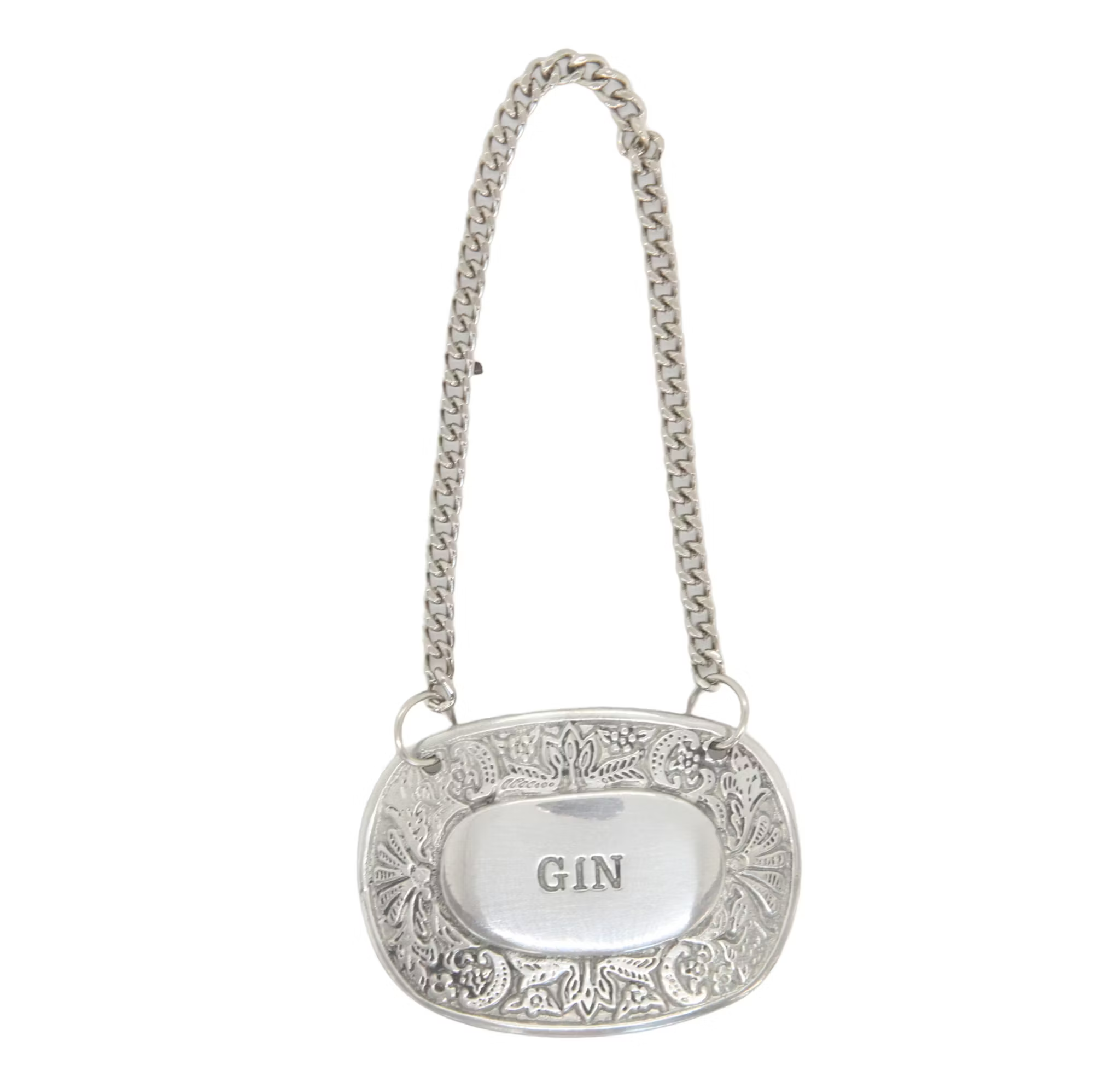Name Tag for Gin
Gin - a name tag for beverages to hang on decanters.
A useful reference when serving drinks – ensuring the right product is enjoyed.
A Brief History of Gin
The story of gin begins in the 12th century, when monks in Italy experimented with infusing alcohol with various herbs and berries to create medicinal tinctures. However, it was in the Netherlands during the 16th century that a drink called "jenever" (or "genever") became popular. Distilled with juniper berries to enhance its flavor, it was used as a remedy for ailments ranging from kidney issues to digestive problems.
English soldiers encountered jenever during wars in the Netherlands and brought the drink back to England, where it became known as gin. By the 18th century, gin had gained immense popularity in England, becoming cheap and widely available, leading to what was known as the "Gin Craze" – a period of excessive consumption and social challenges.
To regulate production and improve quality, laws were introduced, giving rise to "London Dry Gin" in the 19th century. This cleaner, drier style became the foundation of modern gin. Today, gin is a cherished beverage worldwide, available in various styles and variations, all based on juniper and other botanical ingredients.
Swedish Gin
Swedish gin has gained significant popularity in recent years, known for its use of local ingredients and artisanal production methods. Many Swedish gin producers incorporate Nordic botanicals like lingonberries, elderflower, birch leaves, sea buckthorn, and juniper from Swedish nature, giving their gin a unique flavor profile.
Swedish gin is celebrated for its clean taste and connection to nature. It has gained recognition both nationally and internationally, particularly among those looking for something fresh and distinctive in the gin world.
Some of the most renowned Swedish gins include:
Hernö Gin – Located in Härnösand, Hernö Distillery is Sweden’s first dedicated gin distillery. Their award-winning gin is internationally praised for its clean, floral flavor. Hernö Gin uses organic juniper and local ingredients to craft its various products.
Stockholms Bränneri – A distillery based in Södermalm, Stockholm, focusing on craftsmanship and sustainability. Their gin often has a mild, floral tone, and they experiment with flavors like oak barrel aging, citrus, and Nordic berries.
Nordic Spirits Lab – A collaboration among distilleries from different Nordic countries, blending Swedish ingredients like meadowsweet and lingonberries with traditional gin for a Nordic twist.
Malmö Gin – This distillery offers gin with various botanical flavors inspired by Scandinavian herbs and spices, along with variants inspired by local tastes.

 Svenska
Svenska
 Français
Français
 Deutsch
Deutsch






